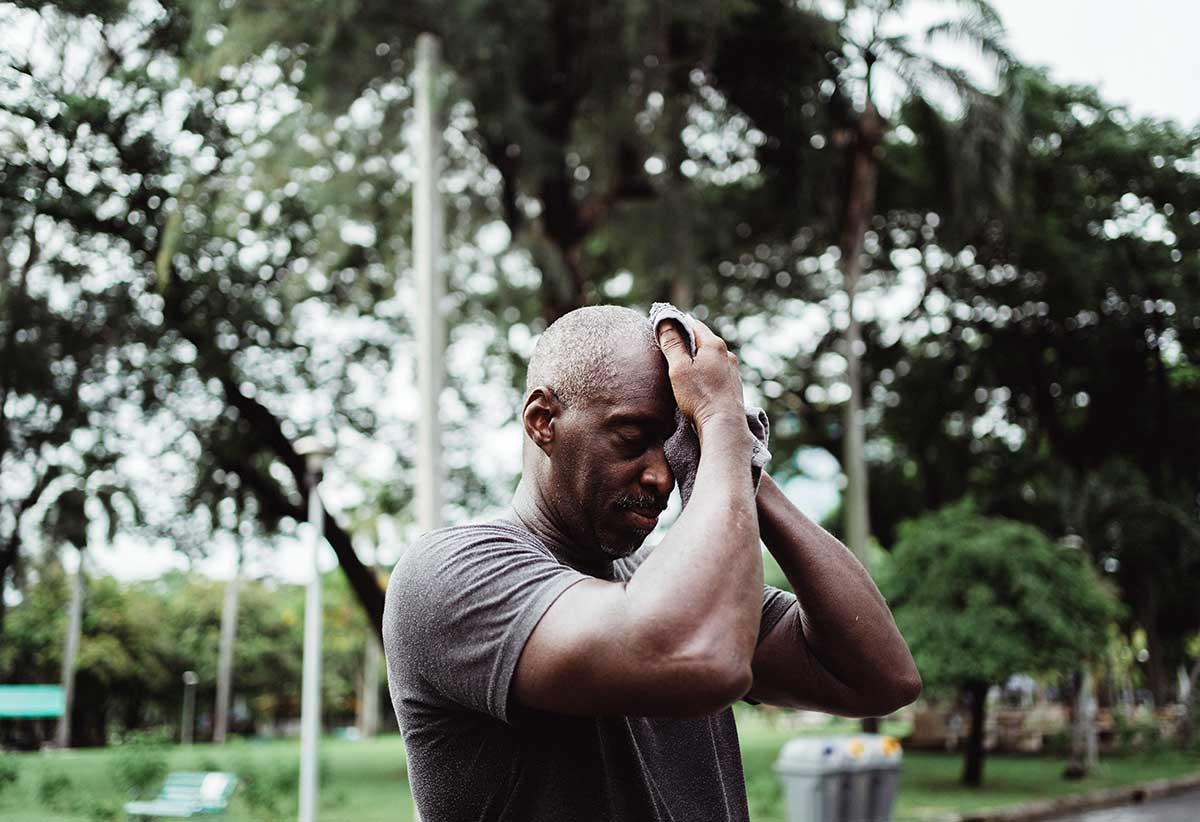
IT’S all over! Raw, intense, and unrelenting heat that is breaking records on all continents.
In Europe, heat waves bearing names like “Cerberus” and “Charon” are ramping up temperatures to unbearable and fatal levels. Heatwaves are affecting large swathes of Asia and North Africa. In Western Canada, a new outbreak of wildfires is pushing plumes of unhealthy smoke into the United States, worsening the US’s own heat-related challenges. The US National Weather Service issued heat alerts for 115 million people in 15 states, with no reprieve in sight for some areas. Phoenix, for example was set to either tie or break its record of 18-straight days with highs of 110°F or above. Texas which had experienced its hottest June ever (2023), can’t get out of the “kitchen.” And in “Death Valley” so named for its life-defying heat, the temperature was expected to climb into record territory of between 129 -132°F last weekend.
That’s considerable heat; at least 30 degrees higher than what I experienced in Jeddah, Saudi Arabia in August 2014. It was so hot there that much of my sightseeing had to be done after midnight. On the one occasion that I attempted a late afternoon walk along the Corniche, to take some pictures, my camera lens melted from the heat.
The Caribbean is not exempted. The slightest outside activity causes heavy sweating. Motorists who used to frown on using their car’s A/C are now running them full blast. Even though it’s breezy, the beach offers little respite because the sea is so warm. As is well known, the mounting heat brings several challenges including heat stroke, wildfires, breathing challenges for people and animals alike, and fish kills. Warm seas usually portend an active hurricane season. The only thing that has worked in our favour so far this season is heavy Saharan Dust that is preventing weather systems from becoming better organized before they reach our region.
Any way you look at it, our earth is heating up and we can’t claim we weren’t warned. Countless studies over the last two decades made clear that unchecked increases in global average surface temperatures (global warming) would cause more frequent and more intense heatwaves. There are other studies that showed that without climate change, certain heatwaves would have been highly unlikely, if not impossible.
Against this daunting background, the question must be asked: how is the Caribbean addressing the reality of Global Climate Change?
Working under the umbrella of the Alliance of Small Island States (AOSIS), Caribbean leaders have been spending considerable time and effort trying to convince the leaders of those countries–whose nasty gases are causing global warming—that they have a moral responsibility to save the world and especially small island developing states (SIDS) from the consequences of their oil-driven development. At the Paris Summit in December 2015, AOSIS unveiled a “1.5 to Stay Alive” campaign– devised in the Caribbean with leadership from then Minister for Sustainable Development, Dr. James Fletcher, and President of PANOS Caribbean Yves Renard (deceased)–which captured the hopes, desires and demands of (SIDS) regarding the outcomes of the Conference of the Parties (COP-21), held in France. The COP is the primary forum where member states of the UN meet to agree actions to stem Climate Change.
Since then, SIDS has eked out some commitments from industrialized countries, including an agreement to pause debt repayments for countries that are affected by extreme weather events. However, scientists have revealed that global warming is on track to reach 1.5 degrees Celsius (2.7 Fahrenheit) above pre-industrial levels NOT by the end of this century but BY 2030, that is WITHIN 7 YEARS!
In my view, our actions in our region have not spoken as loudly as our words overseas. Simply put, we are not doing enough to save ourselves from Climate Change. Hotels are still being built in vulnerable coastlines; precious marine ecosystems that can help reduce storm surge continue to be destroyed; social and economic infrastructure are still being built without due regard to climate change dynamics; the use of simple and cheap devices like hurricane straps in the construction of roofs is not being insisted upon; and tools like Environmental Impact Assessments—commonly called EIAs—continue to be dismissed as time-wasting exercises. Moreover, too few of our farmers are being helped to adopt climate smart agriculture; water wasting devices are still being imported into our region; and many of our water utilities remain under-funded.
The famed, fictional Dr. Spock of “Star Trek” would struggle to find an iota of logic in our decision to buy large amounts of fuel—the very commodity that is changing the climate and threatening our lives and livelihoods—from the very countries that we are asking to save us. We are making “Big Oil” companies richer and making ourselves weaker in the face of Climate Change. In the meantime, with very few exceptions, we continue to ignore our indigenous sources of energy from sun, land, and sea.
If we truly believe Climate Change threatens our very existence, as I am sure we do, we must confront it with the requisite seriousness and urgency. Dialogue is useful but it CANNOT continue to be our main strategy. While we talk in conferences, let’s also talk in the Courts through a Class Action Suit against the major producers of greenhouse gases. While we talk, let’s all follow Dominica’s lead and take concrete steps to build our resilience to Climate Change. While we talk, let’s make better use of our national budgets and domestic finance. Most banks in our region are reporting excess liquidity. I understand that our “fiscal windows” don’t give us much leeway to borrow. However, there is a significant opportunity cost in acting only after we are hit by extreme climate events.
We have a choice: act now to build our resilience to Climate Change or act later at greater cost to repair the damage caused by Climate Change.












